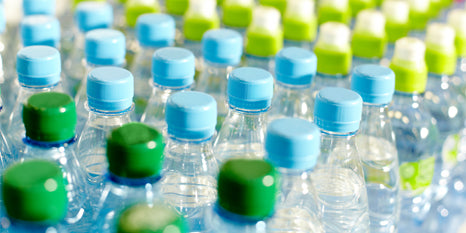
Bisphenol A (BPA) remains on top of the charts of high profile chemicals, holding this dubious distinction for several years now. We toxicologists don’t really have a top 40 but it’s obvious that this one chemical is the poster child for what can go wrong with today’s designer chemicals.
BPA is an environmental estrogen that is tied to concerns about breast cancer, early puberty, male infertility and even obesity. It leaches out of plastic and the plasticized lining of tin cans and so epitomizes the concern that our food packaging is toxic. It brings up the “who's minding the store” question: How could a known endocrine disruptor (known since the 1930s!) be given a home in so many consumer products, including those used by babies?
Thousands of chemicals have been grandfathered into commerce since the 1970s without adequate safety testing – BPA is the ultimate example. When tests show it might be dangerous, the system hiccups on this news. It’s not easy to admit you are wrong, especially when you are supposed to be protecting public health.
BPA also brings up the dueling science issue where the industry-sponsored studies are 180 degrees opposite to what the university studies show. FDA and the European Union so far believe one set (industry) while other governmental bodies (Health Canada, US National Toxicology Program) take a more balanced view. This challenges our notion of what is a “safe” dose, in that some studies suggest that even the tiniest amounts at the wrong time of development may have far-reaching effects.
What makes this more than just an academic case study is that our exposure continues on a daily basis; babies are exposed from their formula cans, baby bottles (if mom and dad aren’t up to speed on this) and mother’s milk (especially if she eats canned foods). Our exposure is not being monitored, as there is very little testing of food and new information suggests that we may even be in contact with BPA every time we touch a cash register or ATM receipt.
BPA may not go away anytime soon but at least you can do a few things to cut down on exposure. Think twice about eating canned anything (e.g., use homemade or dried soups, tomato products out of jars, etc.), give your baby breast milk and if you need to use formula, choose the powdered variety, and go BPA-free when drinking out of a water or baby bottle. While you are taking these baby steps, perhaps federal regulators will take the giant steps necessary to bring BPA and other industrial chemicals under control.
~ Special thanks to Gary Ginsberg, PhD, who authored the original post, from which this has been adapted, in October 2009 for DoctorOz.com. ~
